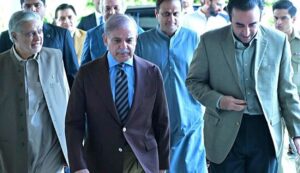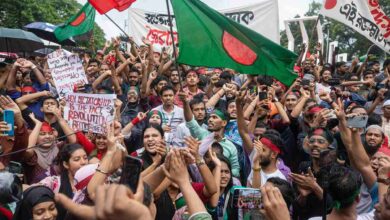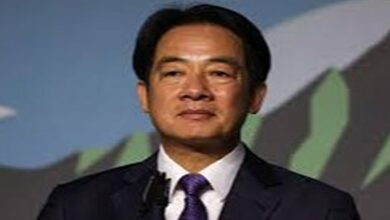The first meeting to resolve differences between Pakistan’s ruling party and key ally Pakistan Peoples Party remained inconclusive
Pakistan: According to Dawn, the first meeting between the Pakistan Muslim League (Nawaz), the country’s governing party, and its primary ally, the Pakistan People’s Party, to resolve their disputes ended without a clear outcome. Neither side provided details of the conference’s contents.

The participants’ short statement was released by the PPP. According to the Pakistani publication, the meeting took place inside Punjab House’s Governor’s Annexe.
The purpose of the conference was to discuss the PPP’s concerns over its representation on the Judicial Commission of Pakistan (JCP) and its grievances regarding the lack of opportunities in the PML-N-governed province of Punjab, Pakistan.
According to Dawn, the PPP publicly voiced its displeasure with the PML-N for failing to consult its coalition partners before making decisions.
According to Dawn, party officials advised the PML-N delegates that they should not take coalition partners for granted if they wanted the party to continue working with them. They also voiced frustration about “hasty legislation” in parliament.
PPP leaders informed the government that the country’s companies were being negatively impacted by Internet slowdowns, which was another topic of discussion. They cautioned that future investments, especially those made abroad, would be in danger if immediate action was not taken to address the problem.
The PPP has expressed fears that the projected six canals on the Indus River in the Cholistan region of Punjab, Pakistan, would leave Sindh’s plains “completely barren.” According to Dawn, they also informed the PML-N about the continuous anti-project rallies taking place across Sindh.
Speaking on condition of anonymity, a PPP leader told Dawn that the two parties spoke on legislative and political issues, particularly the divisive topic of water distribution throughout the provinces. The PML-N was questioned by the PPP leaders on where they planned to get the water for the canals in Cholistan. The PPP cautioned that this initiative may result in a condition similar to a drought.
Concerns on the worsening state of law and order in respective provinces were voiced by representatives from Khyber Pakhtunkhwa and Balochistan.
Ishaq Dar, the deputy prime minister of Pakistan, promised to resolve the PPP’s issues at a recent meeting with PPP chairperson Bilawal Bhutto-Zardari. According to Dawn, the teams from both sides agreed to meet often in order to work out their issues.





